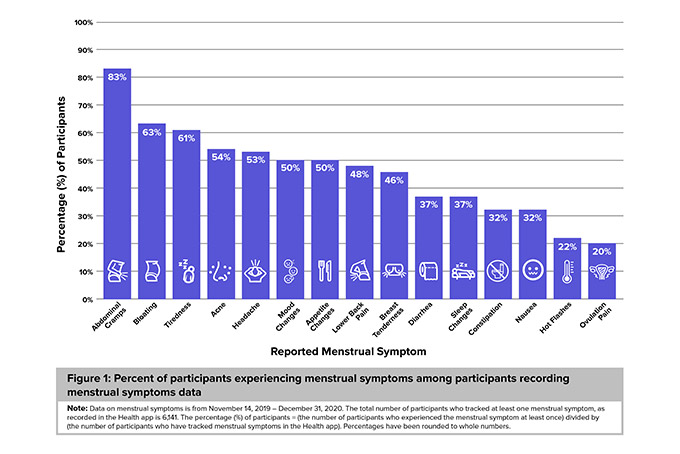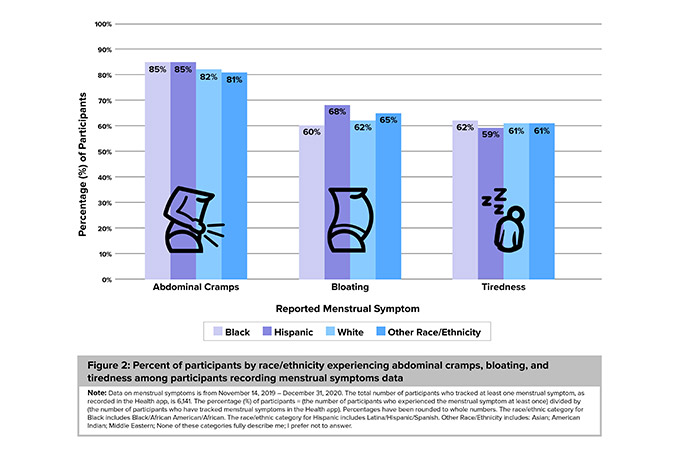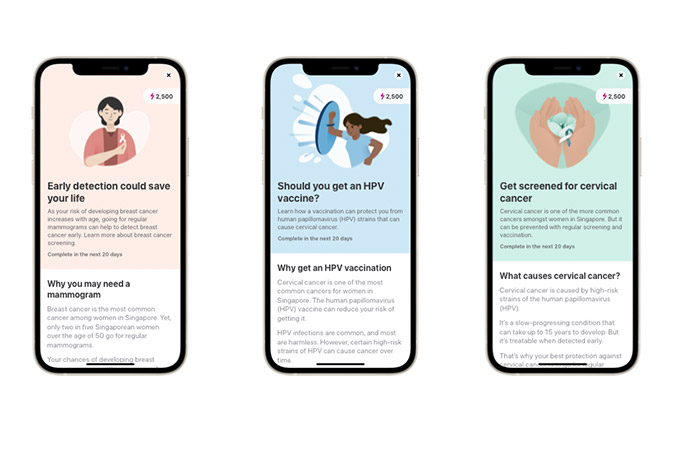It’s the monthly smörgåsbord of menstrual symptoms that people with periods could frankly live without. Abdominal cramps, those are a given. Then it’s a veritable A to Z of issues to tick, that is if you’re tracking your period on Apple’s Health app: from acne to appetite changes, bloating, breast pain, chills, constipation, diarrhoea, hair loss, headaches, hot flushes, lower back pain, lapses in memory, mood swings, nausea, pelvic pain, and vaginal dryness—oh my!
So why is tracking menstrual symptoms so essential, if only reinforce that people with periods are strong as hell? The menstrual cycle is a window into how well our complex hormonal system is working, with significant disturbances to the menstrual cycle indicating underlying health issues.
“The menstrual cycle is a very important part of our health, and it’s also a window into healthy functioning of the whole body,” says Dr Shruthi Mahalingaiah of Harvard’s T.H. Chan School of Public Health. “Irregular or abnormal periods can also be an insight into whole-body health or disease, so when patients come and talk to me in the clinic about their menstrual cycles and periods, one of the first questions I ask is ‘When was your last menstrual period?’” If and when that moment arrives with your own doctor, you’re going to be relieved to have tracked your symptoms in real time via Apple’s Cycle Tracking app.
What’s normal and what needs medical attention? The International Federation of Gynecology and Obstetrics (FIGO) recommends talking to your doctor if your period stops for more than 90 days, last more than seven days, if you have less than 21 days or more than 45 days between periods, if you’re spotting or if your flow becomes so heavy or painful that it hinders your daily abilities.

Why tracking menstrual symptoms matters
A search on PubMed, the biotech resource housing more than 32 million citations of biomedical literature and studies, reveals that unlike cardiovascular search, prostate or erectile dysfunction search terms menstruation is under-researched. Folks with periods may intuitively know that menstrual cycles are a vital glimpse into their overall health, and yet scientifically, the medical knowledge on the topic remains limited, under-researched or simply not representative of the broader population.
Dr Mahalingaiah is the principal investigator for the study and an assistant professor of environmental, reproductive, and women’s health in the department of Environmental Health at the Harvard T.H. Chan School of Public Health. In 2019, the school partnered with Apple in a first-of-its-kind Women’s Health research study with the aims of advancing our understanding of menstrual cycles and how they relate to health conditions such as polycystic ovary syndrome (PCOS), infertility, and menopausal transition. The ongoing study sees a diverse cohort of women across the US contribute to the research by simply tracking their menstrual information using their iPhone and Apple Watch, with participants in full control of each data shared with the study—meaning if you want the study to know you have migraines but not that you’re experiencing mood swings—how you curate and share your data is entirely up to you.
“Despite some of the advances in cycle tracking tools that are available, the research in menstrual cycles and menstrual health remains limited. Historically, the menstrual cycle has been under-researched, and women have been under-represented in very important, large studies,” says Dr Mahalingaiah.
This lack of scientific data on periods has meant that doctors simply don’t yet have the full picture when it comes to addressing women’s menstrual symptoms. The impact of this means that instead of getting the treatment they deserve, their pain and symptoms are minimised or dismissed.

“What researchers and physicians in the scientific community want and need to know is more about the menstrual cycle, its relation to long-term health, as well as more about what environmental factors might affect cycle length and characteristics. With this study, we are creating a larger foundational data set on this topic, which can eventually lead to further discovery and innovation in women’s health research and care,” says Dr Mahalingaiah.
“Period symptoms are a shared experience around menstrual health, across varying ages and ethnicities, and raising the conversation so it is less stigmatised.”

“It’s exciting for me to see so many women be able to participate in this kind of research to share their voices. And a key aspect of this study update, enabled by the Research app and this platform, is that despite a pandemic we are able to ask these questions and continue our research in the privacy of an individual participant’s home, where hopefully stigma is reduced in reporting the symptoms,” says Dr Mahalingaiah.






